VMVasantPanchami
Vasant Panchami![]() (Video of Saraswati celebration)
(Video of Saraswati celebration)
Vasant Panchami is the festival celebrated on the first day of spring in the lunar month of Magh, which usually falls between January and February. It is celebrated in honor of Saraswati, the  wife of Brahma and the goddess of music, knowledge and art. The festival day is believed to be Saraswati’s birthday. She is revered as a source of spiritual enlightenment. Saraswati has four hands that symbolize mind, intellect, alertness and ego. Two of her hands hold sacred scriptures and the lotus, which symbolizes true knowledge; her other hands play music on a lute (veena). Hindus dress themselves in yellow on this day and eat foods of yellow color, and images of Saraswati are dressed in all yellow. The festival is more than just a celebration; on this day, some people feed Brahmanas on this day; special prayers are given to Saraswati; and babies are taught to write their first words. Since Saraswati is usually not worshiped in temples, this day assumes special importance. Miracles, such as healings, have sometimes been reported during this festival. It is believed that those who pray to her will have good fortune in the arts and knowledge.
wife of Brahma and the goddess of music, knowledge and art. The festival day is believed to be Saraswati’s birthday. She is revered as a source of spiritual enlightenment. Saraswati has four hands that symbolize mind, intellect, alertness and ego. Two of her hands hold sacred scriptures and the lotus, which symbolizes true knowledge; her other hands play music on a lute (veena). Hindus dress themselves in yellow on this day and eat foods of yellow color, and images of Saraswati are dressed in all yellow. The festival is more than just a celebration; on this day, some people feed Brahmanas on this day; special prayers are given to Saraswati; and babies are taught to write their first words. Since Saraswati is usually not worshiped in temples, this day assumes special importance. Miracles, such as healings, have sometimes been reported during this festival. It is believed that those who pray to her will have good fortune in the arts and knowledge.
Profile prepared by Josh Jolly
May, 2009
WBTK 1380A.M., Radio Poder
WBTK has been broadcasting since 1926; however, it has only been in its current format as Radio Poder since 2006. Poder, “to be able to” in Spanish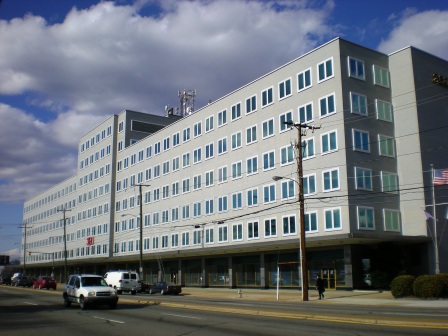 also means power, and that is why the name was chosen. Over the years, the station has been owned by a number of companies. The current owner is New Jersey based Mount Rich media, which also owns two other Christian Spanish-language speaking stations. Radio Poder offers Spanish Christian music and Spanish talk radio. It is
also means power, and that is why the name was chosen. Over the years, the station has been owned by a number of companies. The current owner is New Jersey based Mount Rich media, which also owns two other Christian Spanish-language speaking stations. Radio Poder offers Spanish Christian music and Spanish talk radio. It is
the first Spanish-language Christian station in Richmond. Music styles ranging from reggaeton to salsa can be heard on the station. Speakers for the broadcasts include regular disc jockeys as well as local preachers and ministers that make guest appearances or sometimes even host their own shows. The studios are located on Broad Street in Richmond, and their broadcasts reach across the metro Richmond area as far as Petersburg, Fredericksburg, Powhatan County, and King and Queen County. Their broadcasts specifically target Spanish-language speakers; however, the station prides itself on providing family-friendly programming suitable for all ages.
WBTK 1380A.M., Radio Poder
3600 West Broad Street STE 696
Richmond, VA 23230
(804)353-8544
Sources:
Radio Poder 1380A.M., Website
WBTK Operations Manager
Richmond Times Dispatch Article: Accessed at
http://www.timesdispatch.com/rtd/lifestyles/faith_values/article/-RTD_2007_08_04_0114/66658/
Profile prepared by Julie Miller
February, 2009
WREJ Rejoice Radio
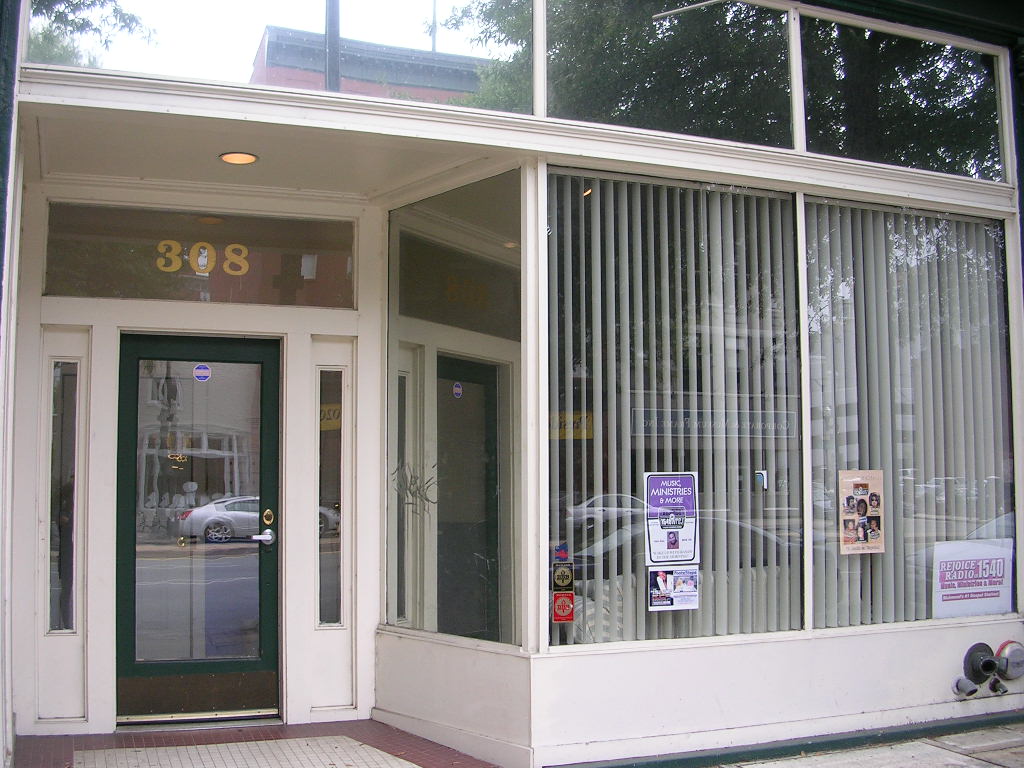 WREJ 1540AM was launched as an urban inspirational gospel station in 1997 by 4M Communications, a small and locally-owned media group. By 2001, 4M Communications owned five local Richmond stations, making it the largest locally-owned cluster of stations in Richmond. WREJ Rejoice Radio survived a format shift that went into effect on 4M’s other four stations on September 13 th, 2003 as WREJ Rejoice Radio’s successful format remained unchanged. Rejoice Radio was so popular that in 2003 it spawned a local-access gospel variety show known as “Rejoice TV” that aired Wednesdays at 10:00pm. The show featured music videos, in-house performances, and interviews with local figures. RICH-TV, the local station that carried this show, went off the air in April of 2006. In November, 2004, 4M sold WREJ Rejoice and three of its other stations to the newly-formed, New York-based Davidson Media Group, which specializes primarily in Hispanic and Urban Inspirational formats.
WREJ 1540AM was launched as an urban inspirational gospel station in 1997 by 4M Communications, a small and locally-owned media group. By 2001, 4M Communications owned five local Richmond stations, making it the largest locally-owned cluster of stations in Richmond. WREJ Rejoice Radio survived a format shift that went into effect on 4M’s other four stations on September 13 th, 2003 as WREJ Rejoice Radio’s successful format remained unchanged. Rejoice Radio was so popular that in 2003 it spawned a local-access gospel variety show known as “Rejoice TV” that aired Wednesdays at 10:00pm. The show featured music videos, in-house performances, and interviews with local figures. RICH-TV, the local station that carried this show, went off the air in April of 2006. In November, 2004, 4M sold WREJ Rejoice and three of its other stations to the newly-formed, New York-based Davidson Media Group, which specializes primarily in Hispanic and Urban Inspirational formats.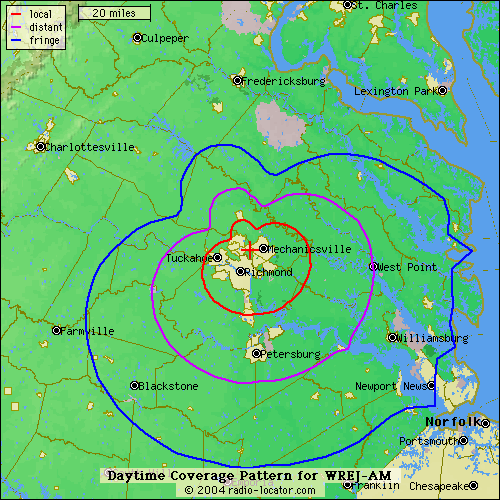
Rejoice Radio features urban inspirational gospel music, preach-and-teach segments often hosted by local religious figures, and considerable community outreach, including a yearly Gospel Talent Show and a presence at the State Fair. Rejoice Radio has offices located downtown on Broad Street, and broadcasting studios on Wilkinson Road. WREJ broadcasts with 10,000 watts of power and can be picked up as far away as Newport News. The audience is primarily 25-54 years old, primarily women, and primarily African-American.
Profile prepared by Emily Stevenson
June, 2006
Religious Congregation Walking Tour
Religious counseling is a growing movement towards integrating secular therapy with a religious worldview. The two most common forms of religious counseling are pastoral counseling , practiced by ordained clergypersons (by any religious body) also accredited by the American Association of Pastoral Counselors (AAPC), and the more conservative Christian counseling , in which the therapist works from a Biblical Christian worldview but may or may not be ordained or licensed. Also included are practitioners of religious science , which is a non-denominational approach integrating religion and science, and emphasizing the importance of prayer and positive thinking.
Profiled Counselors
AAPC Certified Pastoral Counselors:
SIMMONS Harry E., D.Min.
5914 Brookfield Road Richmond , VA 23227
804-264-8458
American Baptist
SMITH Marjorie (Margie) C., D.Min.
P.O. Box 9335
Richmond , VA 23227
804-467-1150
Baptist
BOWERS Christopher C., M.Div.
9001 Patterson Avenue, Apt. 6
Richmond , VA 23229-6114
804-784-6428
804-784-5331
Cooperative Baptist Fellowship
WHITE Garnett L., Ph.D.
1908 LeSuer Road
Richmond , VA 23229
804-732-1527
Cooperative Baptist Fellowship
VOORHIES Nedra, D.Min.
3000 Stone Arbor Lane, #725
Glen Allen , VA 23059
804-502-9111
Episcopal
TURNBULL Malcolm E., M.Div.
8700 Rockcrest Court
Richmond , VA 23235
804-272-0158
Episcopal
JACOBS James F., M.Div.
10807 Sterling Cove Drive
Chesterfield , VA 23838
804-586-7017
National Association of Congregational Christian Churches
GREENE Bancroft F., D.Min.
3501 Wicklow Lane
Richmond , VA 23236-1325
804-745-3245
Presbyterian
ROSSELL Doris Ann, M.Div.
Dialogue Pastoral Counseling Center
4906 Fitzhugh Avenue, #105
Richmond , VA 23230
804-377-1184
Presbyterian
HUMPHREYS Janet L., D.Min.
9170 Ivy Springs Place
Mechanicsville , VA 23116
413-596-5329
Presbyterian
LANE Mark Richard, D.Min.
8401 Patterson Avenue , Suite G-102
Richmond , VA 23229
804-740-1829
Roman Catholic
DOWDY Melvin D., Ph.D.
2902 Garrett Street
Richmond , VA 23221
804-281-8117
Roman Catholic
HITTEL Karen B., M.Div.
4101 Poplar Grove Court
Midlothian , VA 23112-4743
804-763-1478
United Methodist
Non-denominational Christian
The Virginia Institute of Pastoral Care
2000 Bremo Road, Suite 105
Richmond, VA 23226
804-282-8332
http://www.vipcare.org/
Founded in 1967, VIP is an AAPC-certified Service Center and Training Institute for pastoral counseling. Services offered include individual, couple, family, group, and substance abuse counseling. All pastoral counselors on staff are professionally licensed and also hold Master of Divinity or Doctor of Ministry degrees. Need-based financial aid is available.
Counseling and Wellness Services of Central Virginia
4100 Brook Rd. , Suite D
Richmond , VA 23227
804-218-1855
http://www.counselwell.com/
Provides counseling which focuses on the interrelatedness of emotional health, healthy relationships, and good nutrition. Emotional problems, addictions, biochemical imbalances, and health issues are among the issues for which support is available. An intensive program for couples is also available. CWS serves clients throughout Central VA.
Christian Counseling Associates
4914 Radford Avenue, Suite 207
Richmond , VA 23230
1901 Huguenot Road, Suite 201
Richmond , VA 23235 ( Chesterfield County )
9283 Atlee Station Road Mechanicsville , VA 23116
(804) 257-9392
http://www.christiancounselors4va.com/index.htm
Provides individual and family therapy incorporating “ traditional therapy fortified with scripturally-based counseling”. Specialists are licensed by the Commonwealth of Virginia ‘s Board of Health to practice in their particular area of expertise. Many are also members of the American Association of Christian Counselors and/or the Christian Association of Psychological Studies . In practice since 1985.
Center for Less Stress, Inc
2933 W. Leigh St
Richmond , VA 23230
804-354-0990
Individual and group therapy, specializing in anger and stress management. Licensed psychologist uses cognitive-behavioral and mind-body methods in conjunction with Christian principles.
Full Circle Ministries
2221b E Clay St
Richmond , VA 23219
804-643-3845
Offers Christian counseling in mental health, health care, and substance abuse.
Rose of Sharon Counseling Services
4100 E. Parham Rd , Suite B
Richmond , VA 23228
804-382-0293
Provides Christian counseling based on biblical principles as well as clinical interventions. All ages. Also provides consultation, supervision and training services to parents, health professionals, schools and churches.
Bethany Christian Services
5001 West Broad Street, Suite 140
Richmond , VA 23230
804-360-0466
804-726-2762
http://www.bethany.org
Provides free pregnancy and adoption counseling. Primarly known as an adoption agency, but also extends Christian counseling services to others who are struggling. Founded in 1944.
Shepard’s Staff Ministry
7521 Comanche Drive
Richmond , VA 23225
804-327-0707
http://www.shepard-staff.org
Offers Christian counseling to families, groups, couples, individuals, and clergy. Also offers consulting services to churches and other organizations.
Commonwealth Christian Counseling
1805 Monument Ave
Richmond , VA 23220
804-254-7643
Rapture Time Assembly Of God
2413 Jefferson Davis Highway
Richmond , VA 23234
804-233-6158
Father’s House Healing Center
11925 Centre St
Chester , VA 23831
804-748-7444
Religious Science
Spiritual Mind Center of Richmond
12594 Patterson Avenue ,
Richmond , VA 23233
804-784-9830
Founded in 1994, the SMC offers classes in Religious Science or Science of the Mind. Students learn how to change their lives by changing the way they think.
Inner Peace
3201 Skipwith Rd
Richmond , VA 23294
Offers classes in Science of the Mind. Credentialed counselors offer help with grief, inner child work, past/future life regression, and chakra working.
WarsawCondominiums
The Warsaw Condominiums
On August 30, 1830, a square lot of land bordered by Harvie, Main , Plum Streets, and present-day Floyd Avenue was purchased by William Anderson. Located just outside the Richmond city limits at the time, a large brick house named the “the Warsaw ” was built on the newly-purchased land. The Warsaw ‘s owner, William Anderson, was a wealthy investor who owned a number of businesses within the city of Richmond , including a grocery store, barber shop, and the Washington Tavern. Insurance papers show that Anderson ‘s Warsaw property consisted of a large house with two smaller outlying buildings (a kitchen and stable). All buildings were made out of brick and had wooden roofs.
At the time, the Warsaw was the “only substantial new house built in the Sydney [neighborhood] area during the period from 1819-1838” (Carneal, 45). It soon became substantial for another yet another reason. In 1832, just two years after William Anderson had purchased the land, he rented the Warsaw to Andrew Stevenson, a Virginia Congressman who served as Speaker of the House from 1827 to 1834. The Stevenson family remained in residence at the Warsaw until he was appointed the American Minister to the United Kingdom in 1836. After the death of William Anderson that same year, the Warsaw property was transferred to his daughter, Mary Gilmer, with her father-in-law, Thomas Walker Gilmer (also the Governor of Virginia), serving as the land’s trustee. Mary Gilmer and her Presbyterian-minister husband, George Hudson Gilmer, owned Warsaw until it was bought by the Richmond Catholic Diocese in 1877.
In 1873, James Gibbons, Richmond ‘s fourth Roman Catholic Bishop, called on a mendicant order of nuns, the Little Sisters of the Poor, to open a much-needed hospital for the elderly. Six members of the order arrived in Richmond On October 13, 1874, including their Mother Superior, Sister Virginia. Upon their arrival, the Little Sisters first set up the St. Sophia Home of the Little Sisters of the Poor at Marshall and Ninth Streets. As a hospital and home for the elderly, St. Sophia’s was open to “poor, aged, white persons” and soon became pressed for space (Fogarty, 231). As a result, Bishop Gibbons purchased the Warsaw property in 1877 to better suit the growing needs of Little Sisters.
Immediately after the Warsaw was purchased, the property underwent a large renovation to make it suitable for St. Sophia’s. The most important task was the creation of additional space. The existing brick house was simply too small to adequately house the number of elderly residents under the Little Sisters’ care. As a result, new north and south wings were added to the original structure, which was not demolished but rather “enveloped” within the new, Italianate-style, larger building. The transformation of the Warsaw property from house to hospital is also important because it remains “as the city’s major institutional structure of the period” ( Virginia Historic Landmarks Commission).
A second wave of renovation occurred in 1894. With St. Sophia’s yet again filled to capacity, more space was needed. This renovation, designed in the Second Empire style, added a new south wing to serve as a convent as well as an entire fourth floor addition. With more free space, the basement was completely remodeled for use as a large kitchen with facilities for dish washing, laundry, and storage. A new outbuilding was also created to house a community room, guest suite, barber, and a large footbath. By this time, the only existing outbuilding of the original Warsaw property was the stable, which was used by St. Sophia’s for storage. The still-prominent brick and iron retaining wall was also added at this time, in part for security, but mostly out of necessity. As the Fan District underwent large-scale expansion, the streets surrounding St. Sophia’s were subsequently lowered, making a substantial retaining wall necessary to support the grounds surrounding the institution.
St. Sophia’s Home continued in use throughout the twentieth century, and as late as 1939 there were 15 sisters serving approximately 160 residents. With the exception of some modernization, there was very little was change to the property. In 1976, it was decided that the Little Sisters of the Poor and residents of St. Sophia’s would move to a new modern complex in Henrico County . After the order and residents departed, St. Sophia’s sat abandoned until 1982. During its six-year unoccupied period, the building fell into a great state of disrepair (in part due to vandalism). Interestingly, St. Sophia’s was accepted into the National Register of Historic Places as a Virginia Historic Landmark for its unique architecture in 1980. Two years later, Area Corporation, a local Richmond redevelopment firm, began a large-scale restoration of the St. Sophia property. The former institutional building was slated to be repurposed into a luxury condominium complex named “The Warsaw” after the original house built by William Anderson.
The redevelopment of St. Sophia’s Home of the Little Sisters of the Poor into the Warsaw Condominiums is unique because of the care taken to preserve the property’s historical and religious integrity. While necessary steps were taken to completely modernize the complex, wherever possible original architectural details have been preserved. One example of this is in the preservation of much of the original chapel structure. While it now houses a number of condominiums, the space has been divided into four floors, with a master bedroom now occupying the top floor of chapel’s chancel, or alter area. Although the original chapel windows have been replaced with modern ones, they still retain their original shape. Inside the main hallways, arched doorways and original windows have also been preserved. The basement, once used as the kitchen for the entire institution, has been altered very little and is now used for storage. Grand archways and vaulted ceilings that seem out of place for a normal basement or cellar still exist, in addition to a fireplace and bricked-in windows that perhaps belong to the original 1830 house.
Outside, the stable of the original Warsaw house is also still present, although it is now used for office and storage space. A large undated stone Marian grotto built by the Little Sisters of the Poor also remains close to the retaining wall bordering Floyd Avenue . Although the Little Sisters wished to take the grotto along with them, its immense size made it impossible (They were, however, able to transport the statues that would have occupied the grotto). Any crucifixes or other religious paraphernalia that existed within the original St. Sophia structure have also been removed by the order. Upon their departure, the Little Sisters of the Poor did leave two large paintings of nuns with the new owners. These paintings now hang prominently on the first and second floors, serving as homage to the former occupants. As a private residence, the Warsaw Condominiums are gated and not open to the public; however, many of its exterior historical architectural features are visible from Harvie Street .
T he Warsaw Condominiums
1401 Floyd Avenue
Richmond , VA 23220
(804)-359-4487
Sources:
Personal Interview, The Warsaw Condominiums Manager
Area Corporation. The Warsaw : Restoration of a Dream . n.p ., n.d.
Carneal, Drew. Richmond ‘s Fan District . Richmond : The Council of Historic Richmond Foundation, 1996.
Fogarty, Gerald P. Commonwealth Catholicism . Notre Dame, IN:
University of Notre Dame Press, 2001.
Virginia Historic Landmarks Commission. National Register of Historic Places Inventory Nomination Form for St. Sophia Home of the Little Sisters of the Poor . Richmond , VA : 1980.
Profile Prepared by Erica Johnson
October, 2007
WestminsterCanterbury
Westminster Canterbury of Richmond
Westminster Canterbury Corporation owns the Westminster Canterbury retirement community. The Episcopal and Presbyterian churches founded this not-for-profit facility with the mission of helping older adults maintain independence and spiritual well-being. This mission is overseen by a volunteer board of trustees. Despite its religious roots, Westminster Canterbury is nondenominational, and religious affiliation is not a factor in acceptance into Westminster Canterbury community. Currently, nineteen denominations are represented in the community, spanning one hundred and fifteen religious congregations. Westminster Canterbury is accredited by the Continuing Care Accreditation Commission.
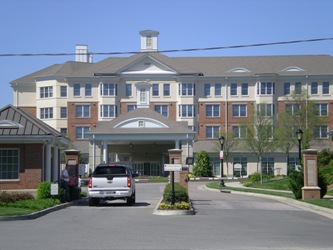 Residences at Westminster Canterbury include detached, colonial-style homes at The Glebe, adjacent to the main campus; Garden apartments, spacious one- and two-bedroom residences in a combination of contemporary and traditional styles; The Tower, studio, one- and two-bedroom apartments located on eight different levels; two-, three- and four-bedroom single-family homes on The Green; one-, two- and three-bedroom Courtyard apartments, with patio or balcony; Avalon and Pavilion, one- and two-bedroom assisted living apartments; and The Gables, a residential center for those with memory loss. Small dogs and cats are allowed in some of the residences.
Residences at Westminster Canterbury include detached, colonial-style homes at The Glebe, adjacent to the main campus; Garden apartments, spacious one- and two-bedroom residences in a combination of contemporary and traditional styles; The Tower, studio, one- and two-bedroom apartments located on eight different levels; two-, three- and four-bedroom single-family homes on The Green; one-, two- and three-bedroom Courtyard apartments, with patio or balcony; Avalon and Pavilion, one- and two-bedroom assisted living apartments; and The Gables, a residential center for those with memory loss. Small dogs and cats are allowed in some of the residences.
The majority of residents choose the community’s standard refund plan. This includes a one-time entrance fee, and then a monthly fee. By paying the entrance fee, residents guarantee their right of residency and are given the option of covering some or all of the healthcare services that may be needed. A lifecare plan is offered by Westminster Canterbury. This plan guarantees residents access to any healthcare services needed without an increase in monthly fees. The monthly service fee includes up to three meals daily in one of several dining rooms, with choice of buffet or seated service; weekly housekeeping and laundering of linens and towels; all utilities, including individually controlled heating and air conditioning; local telephone and basic cable television service; maintenance of all residences, including major appliances, landscaping and grounds keeping; an emergency call system in each apartment; 24-hour patrols by the Westminster Canterbury security staff; social and recreational activities; and amenities and full lifecare, if a lifecare entrance plan option is selected. These fees are updated annually. A portion of the entrance fee is tax deductible as a prepaid medical expense for those with lifecare plans as well as a part of the monthly fee. No one is asked to leave the facility due to inability to pay. The Westminster Canterbury Foundation provides over two million dollars per year in financial aid to residents.
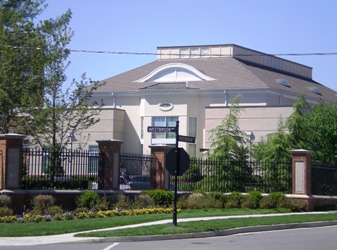 Amenities for Westminster Canterbury residents include, an indoor pool, the Sara Belle November Theater , a computer center, a 4,000-volume library, billiards rooms, game room, numerous lounges, woodworking shop, art studio, a greenhouse, resident gardens, walking paths, flower gardens, a chapel, a fitness room, a whirlpool, a roof terrace with panoramic view, two auditoriums, a private dining room for special family or social occasions, resident’s association membership, concierge, and courtesy cart and driver. For additional costs residents can enjoy the Galleria Gift Shop, beauty salon and barber shop, a full-service bank, on-site mail services, dietitian consultations, an outpatient clinic, a pharmacy and therapy center, personal transportation, dry cleaning, a business center with copy and fax machines, and a Performing Arts Center with 320-seat theater. Exercise programs; water aerobic and swimming programs; seminars on nutrition and other health issues; preventive and primary care, with physicians and dentists on-site; and full pharmacy services on-site are all offered at Westminster Canterbury. Spiritual programs at Westminster Canterbury include a lecture series dedicated to religious topics several times a month. The Westminster Canterbury chapel also provides worship opportunities for residents.
Amenities for Westminster Canterbury residents include, an indoor pool, the Sara Belle November Theater , a computer center, a 4,000-volume library, billiards rooms, game room, numerous lounges, woodworking shop, art studio, a greenhouse, resident gardens, walking paths, flower gardens, a chapel, a fitness room, a whirlpool, a roof terrace with panoramic view, two auditoriums, a private dining room for special family or social occasions, resident’s association membership, concierge, and courtesy cart and driver. For additional costs residents can enjoy the Galleria Gift Shop, beauty salon and barber shop, a full-service bank, on-site mail services, dietitian consultations, an outpatient clinic, a pharmacy and therapy center, personal transportation, dry cleaning, a business center with copy and fax machines, and a Performing Arts Center with 320-seat theater. Exercise programs; water aerobic and swimming programs; seminars on nutrition and other health issues; preventive and primary care, with physicians and dentists on-site; and full pharmacy services on-site are all offered at Westminster Canterbury. Spiritual programs at Westminster Canterbury include a lecture series dedicated to religious topics several times a month. The Westminster Canterbury chapel also provides worship opportunities for residents.
Westminster-Canterbury of Richmond
1600 Westbrook Avenue
Richmond, VA 23227
Sources:
Westminster Canterbury Website
Westminster Canterbury Pamphlet
Profile prepared by Julie Miller
April, 2009
WestviewontheJames
In 1966, the Methodist’s Richmond District conference dreamed of a place where people could enjoy nature through camping and fellowship in faith through an “outdoor Christian Ministry.” Through the help of the District Superintendent and pastors and through generous finanical support, Westview on the James was created.
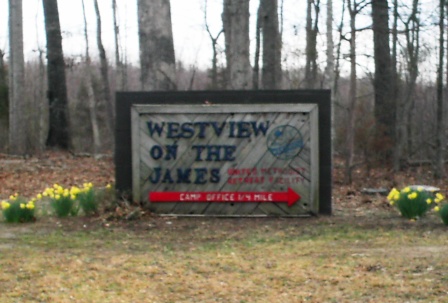 Westview on the James is a campground and retreat center situated on 780 acres overlooking the James River in Goochland County. Currently it serves and is shared property of the Richmond, Ashland and Charlottesville United Methodist Districts, as well as providing services and retreat facilities and summer camp opportunities for many other groups. The grounds include a lake, swimming pool, lodging and dormitories with bathouses, year-round dining facilities, and a “lakeside lodge for retreats.” There are acres of campgrounds and wilderness, creating a host of opportunities for communion with nature as well as Christian fellowship and retreat.
Westview on the James is a campground and retreat center situated on 780 acres overlooking the James River in Goochland County. Currently it serves and is shared property of the Richmond, Ashland and Charlottesville United Methodist Districts, as well as providing services and retreat facilities and summer camp opportunities for many other groups. The grounds include a lake, swimming pool, lodging and dormitories with bathouses, year-round dining facilities, and a “lakeside lodge for retreats.” There are acres of campgrounds and wilderness, creating a host of opportunities for communion with nature as well as Christian fellowship and retreat.
Funding for Westview came from the Frank E. Brown Society endowment. The endowment was created by the Westview Board of Directors to “build a fund that would provide financial stability and enable Westview to stay in the forefront of Christian camping, and to provide an opportunity for Westview supporters to give a gift that would continue to give year after year.” The endowment was established in 1997. The endowment is managed by the Board of Directors along with laity and clergy from the three owning districts and their investment committee. Westview is managed by its permanent staff, and oversight is handled by the Board of Directors. For donations and endowment gifts, Westview maintains a “needs” list on their website that can assist those who would like to donate items or money choose to meet specific needs of the camp. Those who donate are referred to as “Friends of Westview.”
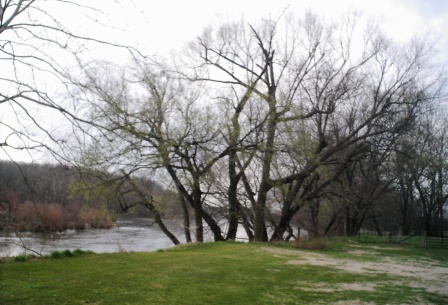 Westview also has a mission program that allows youth groups or individuals to make a difference in the community and for Westview itself. The Mission Program at Westview is designed to coordinate opportunities both on Westview property and at off-site mission locations. Some opportunities include Habitat for Humanity and Interfaith Housing Corporation. These missions are usually weekend missions, and they will generally include lodging, food, recreation and evening programs provided by Westview. There is a calendar of Missions and Mission teams on Westview’s website that also refers back to past missions and mission groups.
Westview also has a mission program that allows youth groups or individuals to make a difference in the community and for Westview itself. The Mission Program at Westview is designed to coordinate opportunities both on Westview property and at off-site mission locations. Some opportunities include Habitat for Humanity and Interfaith Housing Corporation. These missions are usually weekend missions, and they will generally include lodging, food, recreation and evening programs provided by Westview. There is a calendar of Missions and Mission teams on Westview’s website that also refers back to past missions and mission groups.
As a Christian campground, Westview provides numerous retreat programs, ranging from self-esteem building workshops to opportunities to meet new people. All programs are biblically based. Some retreats are arranged through the District churches and some are annual retreat events.
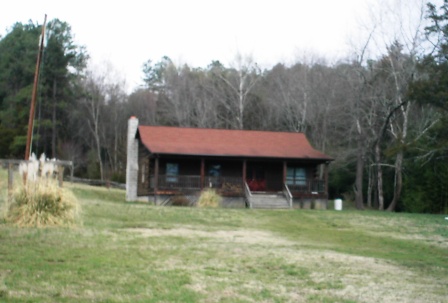 Westview offers a Challenge Course intended to function as an icebreaker for groups, and to assist with team-building, problem-solving skills and building group initiative and team-mindset. The Challenge Course is a tradition for some youth groups. Many school systems offer this course, and many other youth organizations, such as Girls Scouts of America, use Challenge Courses as an opportunity to build morale for their groups. Challenge courses consist of physical obstacles that must be overcome wtih a combination of both physical and cognitive skill along with group work to reach “a common goal.” Westview’s motto for their Challenge is course is, “Let your hands get dirty; let your hair get mussed. In play carelessness is a virtue.” Westview’s Challenge Course offers the obstacles people have come to expect, such as the “The Wall,” which is a 35 ft. outdoor climbing wall, “Zip n’ Dip,” and a 300 foot zipline that takes daring riders directly into the water of Westview lake. Groups can choose one or more courses and pay based on the number of courses and participants.
Westview offers a Challenge Course intended to function as an icebreaker for groups, and to assist with team-building, problem-solving skills and building group initiative and team-mindset. The Challenge Course is a tradition for some youth groups. Many school systems offer this course, and many other youth organizations, such as Girls Scouts of America, use Challenge Courses as an opportunity to build morale for their groups. Challenge courses consist of physical obstacles that must be overcome wtih a combination of both physical and cognitive skill along with group work to reach “a common goal.” Westview’s motto for their Challenge is course is, “Let your hands get dirty; let your hair get mussed. In play carelessness is a virtue.” Westview’s Challenge Course offers the obstacles people have come to expect, such as the “The Wall,” which is a 35 ft. outdoor climbing wall, “Zip n’ Dip,” and a 300 foot zipline that takes daring riders directly into the water of Westview lake. Groups can choose one or more courses and pay based on the number of courses and participants.
Westview offers two different camps, the Resident Camp and the Adventure Camp. The Resident Camp follows the format for the prototypical boarder camp, but Westview’s Camp has a Christian focused program in combination with a focus on education and the outdoors. Each activity is designed to teach the campers something new, such as Astronomy, canoeing, archery, fishing and photography lessons. There are hiking trips, hayrides and Bible discussions intended to help provide the campers “the opportunity for twenty-four hour-a-day personal and group experience with God and discovery of how the Bible affects our daily existence.” The camp sessions are arranged by age and generally are intended for children from 6-18. The camp runs from mid-June through mid-August.
The Adventure Camp is geared to children age 13-17 and creates new outdoor activity skills, or helps the campers build on skills they already possess. They will be immersed in the outdoor experience, and this camp will also, like the Resident Camp, focus on enabling the campers to live a Christian lifestyle. The camp offers discussion and study, and will have “evening vespers” like the Resident Camp. This camp, as it is intended for older campers, will generally require campers to spend a portion of the day in devotion and short Bible study sessions. Each session offers different activities and also is developed based on the ages of the campers. Westview is equipped with a pool that serves to cool campers during the southern summer months; it is also the home of the Aquatic Education department. Westview offers pool memberships, along with Red Cross swimming lessons, for people of all ages.
Westview on the James
1231 Westview Road
Goodland , VA 23063
(804)-457-4210
Sources:
Camp Director
Westview on the James website
Profile prepared by Emily R. Sprouse
February, 2008.
WorldwideMarriageEncounter
The Richmond Diocese of Worldwide Marriage Encounter ![]() (Video advertisement for a marriage encounter weekend)
(Video advertisement for a marriage encounter weekend)
The Richmond Diocese of Worldwide Marriage Encounter is dedicated to improving the Richmond Community and to supporting local churches by strengthening marriages. The organization pursues this goal through Marriage Encounter Weekends in which couples reconnect, reaffirm the sacred covenant of marriage, and learn communication skills. While Worldwide Marriage Encounter has Catholic roots, it is inclusive of other expressions of the Christian faith. In the Richmond area, denominations such as Methodists, Episcopalians, and Baptists hold weekends for members of their own faiths. In addition, the Catholic weekends reserve a percentage of their available spaces for couples of other faith traditions.
 The Richmond Diocese of Worldwide Marriage Encounter does not have an articulated doctrinal position on individual articles of the Christian faith, but it assumes a theology compatible with the Apostle’s Creed. The only position taken by Worldwide Marriage Encounter that in any way differs from that of traditional Christianity, especially traditional Catholicism, is its treatment of sexuality. The group and its literature honors sex as a vital element of a healthy marriage and as an expression of God’s love. Couples are encouraged to dialogue about sex and are encouraged to make love as a part of the weekend’s activities. The procreative role of sex is not emphasized, and there is no mention of the church’s position on birth control. Part of the philosophy of The Richmond Diocese of Worldwide Marriage Encounter is that communicating emotions and listening without judgment are the pillars of intimacy. They believe that husbands and wives become disillusioned if the marriage is not routinely infused with intimacy. The group teaches that unfortunately, after the initial courtship period, most couples stop sharing emotions and concentrate on the tasks associated with marriage and family. Maintenance of the relationship slips to the bottom of the list of priorities.
The Richmond Diocese of Worldwide Marriage Encounter does not have an articulated doctrinal position on individual articles of the Christian faith, but it assumes a theology compatible with the Apostle’s Creed. The only position taken by Worldwide Marriage Encounter that in any way differs from that of traditional Christianity, especially traditional Catholicism, is its treatment of sexuality. The group and its literature honors sex as a vital element of a healthy marriage and as an expression of God’s love. Couples are encouraged to dialogue about sex and are encouraged to make love as a part of the weekend’s activities. The procreative role of sex is not emphasized, and there is no mention of the church’s position on birth control. Part of the philosophy of The Richmond Diocese of Worldwide Marriage Encounter is that communicating emotions and listening without judgment are the pillars of intimacy. They believe that husbands and wives become disillusioned if the marriage is not routinely infused with intimacy. The group teaches that unfortunately, after the initial courtship period, most couples stop sharing emotions and concentrate on the tasks associated with marriage and family. Maintenance of the relationship slips to the bottom of the list of priorities.
The Marriage Encounter Weekends are held in hotels, with couples staying in rooms rented by the organization. Organized sessions held in conference rooms. For Catholic weekends, the group is usually led by three couples and a priest; for groups of other faith-expressions, weekends are led by four couples. The leaders share their own experiences of marriage and of learning the techniques proposed by Worldwide Marriage Encounter. They present Worldwide Marriage Encounter materials and handle the weekend’s logistics. The leaders do not counsel couples, nor do the couples discuss their marriage or any problems they might be experiencing with anyone except each other. The weekend ends late Sunday afternoon, and couples are encouraged to meet regularly with other “encountered” couples and to continue the communication method learned during the weekend.
The weekend is divided into approximately ten sessions. Each session starts with a presentation in which leaders introduce a topic and teach from the WWME’s curriculum. The couples return to their hotel rooms to communicate about the assigned topic using a prescribed method of communication called “dialoguing”. Each dialogue takes about twenty minutes and involves three steps.
- Each member of the couple writes a love letter for ten minutes, describing his or her feelings about a particular subject such as, “What I appreciate most about you is ____” or “In what ways do I find it difficult to listen to you and how do I feel about that?”
- At the end of ten minutes, the couple exchanges and reads each other’s love letters. They then decide which person’s emotions are strongest and therefore the one that they will continue to dialogue about.
- The person who is now the listener, asks questions, trying to get clarity about the other’s feelings. Follow-up questions can include “Is it like the time __________?” or “Have there been other times when you felt this way?”
The Richmond Diocese of Worldwide Marriage Encounter encourages couples to express feelings during this time, not judgments. A feeling is thought to be neither right nor wrong and has no morality attached to it. More importantly, perhaps, one cannot really argue against another’s feelings. To encourage couples to share feelings, Worldwide Marriage Encounter provides a list of words associated with feelings, such as happy, angry, tired, sad, overwhelmed or excited. The group also provides couples with feelings prompts, such as asking them to rate the intensity of the emotion and how it feels in their body, and suggests sense-metaphors for describing the emotion. Examples include: “My anger would taste like a bitter lemon. I feel affection for you that feels like soft silk. My joyful feeling has all the colors of a sunset at sea.” Couples are encouraged to avoid engaging in discussions about old hurts that are off subject, blaming, being critical, interrupting their spouse or giving up and walking out on the discussion.
At the end of the weekend, each couple is encouraged to make dialogue a part of their daily routine. Possible topics for dialogue are offered, and the couple is encouraged to remain active in the Worldwide Marriage Encounter community. Since the weekend is free for participants, couples are also offered a chance to make anonymous donations at the end of the weekend.
Like all of the leadership, the leaders of Richmond Diocese of Worldwide Marriage Encounter are trained volunteers. Richmond Diocese of Worldwide Marriage Encounter is a non-profit, volunteer organization. Leaders are neither clergy nor marriage counselors but rather are couples who have found that their marriages have been transformed through the marriage encounters and wish to share the experience with others.
Richmond Diocese of Worldwide Marriage Encounter
Bill & Mary Dingler
Area Leadership
Richmond Diocese
(757)-301-7241
Sources:
Richmond Diocese of Worldwide Marriage Encounter materials
Richmond Diocese of Worldwide Marriage Encounter website
Richmond Diocese of Worldwide Marriage Encounter group leaders
Profile prepared by Christine Woodman
March, 2008
YMCA
Young Men’s Christian Association (YMCA)
The Young Men’s Christian Association was founded in London, England in the mid-1800’s. It started as a way of helping the young men who needed a job to support their families as many young men were having a difficult time finding a job and were living on the street. George Williams and his colleague organized the first YMCA to hold Bible study and prayer on the street. The YMCA rapidly spread all over Great Britain and not long was introduced to North America, first in Montreal and then in Boston. Currently there are over 2000 YMCA’s in the United States and over 4000 worldwide. The YMCA is known for its commitment to improve and its members and the communities in which it is located. The original purpose of the organization was to put Christian philosophy into practice. Today, the degree to which the Christian faith is emphasized differs among individuals. In general, theYMCA is open to all, regardless of age, gender, religion, and race.
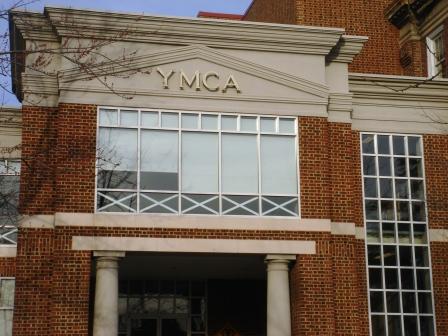 Established in the mid-1800’s, The Richmond YMCA started as a fellowship group and Bible study group for young men. Through its 154 year history the YMCA of Great Richmond has had a goal of building strong family and community and continues to serve people who are in need. The YMCA of Greater Richmond describes its mission as to put Christian values into practice through programs that construct a positive attitude for all. The YMCA of Greater Richmond is non-profit charitable organization that runs 15 branches located throughout the Metro Richmond and Petersburg areas. The organization serves more then 150,000 people each year, offering programs in child care, aquatics, youth sports, camping, and wellness. The YMCA is particularly active in offering programs and services that allow families to succeed together and in helping teens to become healthy, secure adults by providing adults who serve as are role models.
Established in the mid-1800’s, The Richmond YMCA started as a fellowship group and Bible study group for young men. Through its 154 year history the YMCA of Great Richmond has had a goal of building strong family and community and continues to serve people who are in need. The YMCA of Greater Richmond describes its mission as to put Christian values into practice through programs that construct a positive attitude for all. The YMCA of Greater Richmond is non-profit charitable organization that runs 15 branches located throughout the Metro Richmond and Petersburg areas. The organization serves more then 150,000 people each year, offering programs in child care, aquatics, youth sports, camping, and wellness. The YMCA is particularly active in offering programs and services that allow families to succeed together and in helping teens to become healthy, secure adults by providing adults who serve as are role models.
YMCA
2 West Franklin Street
Richmond, VA 23220
(804)-649-9622
Source:
Richmond YMCA website
Profile prepared by Tegest Mesfin
February, 2009
